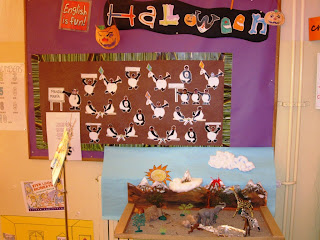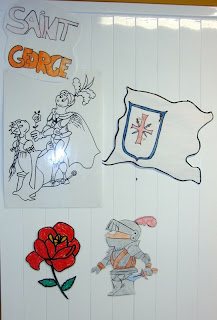Talking about the future and the jobs students plan to do, it is always very rewarding. Children like to imagine how things will be like in their lives and, what’s more, you as a teacher can learn a lot about the personality of your pupils.
In my year 4 Primary ESL class we were involved during three sessions in practicing some research, reading, talking and writing to do a final display on the window corridor about future jobs
This is the way we did in our class, and it was a complete success.
As main objectives I planned:
- Students will practice their writing skills by writing about what they want to be when they grow up.
- Students will learn about their profession of choice by researching it.
- Students will read, choose and write positive comments for their mates and their future jobs
- Students will practice small motor skills by making a flower for a big display of what they want to be when they grow up.
Materials Needed:
- The corridor wall or a window for the display
- Coloured Papers Pencils
- Crayons/Markers
- Glue (or other ways to attach finished products to the window)
- Posters, books or Internet finding on various professions
- 100 ways to praise a child poster

You can start by leading a group discussion on different jobs…have the students discuss things like what jobs their parents have and what they think they want to be when they grow up.
Show the students the blank space where the project will be displayed. Explain that they are going to fill it up with their writings and pictures (or flowers with a positive comment in each petal).
Invite them to write a paragraph on what they want to be when they grow up. For struggling students, you can make the writing assignment shorter; for advanced ones, you can have them write more. They may go to the school library to get a book on that profession or have a research in Internet in order to know some basic characteristics on it. Then, ask students to draw a picture of themselves in their chosen profession.
You can either post on the display their drawing and writing, or the flowers with nice and praising sentences (this was the way we did!).
To do it more challenging:
- Put all of the writings together in a class book about jobs.
- Invite other classes to come take a look at our jobs display.
Please share any new ideas or resources on this topic!
 One of the most difficult issues to work without published English course books is to find good videos (and listenings) adapted for the ESL ...
One of the most difficult issues to work without published English course books is to find good videos (and listenings) adapted for the ESL ...















.jpg)










